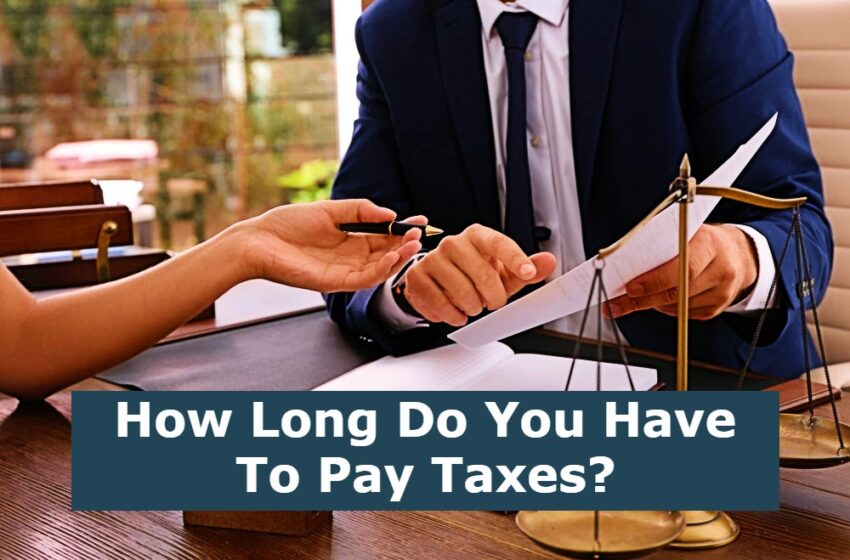
How Long Do You Have To Pay Taxes?
When it comes to your taxes, how long do you have to pay them? What will happen if you don’t? If you are paying your taxes late, what is the penalty? And how do you get a payment plan? Those are all questions you want answered before you file your tax return.
Payment plans
If you owe the IRS money, you may be eligible to apply for a tax payment plan. These plans help you spread out your payments and pay back your taxes in full. However, you will need to provide the IRS with information. You can do this online, by mail, or in person.
Payment plans are designed to keep you from facing penalties and collection actions. However, the IRS also collects interest on unpaid taxes. The amount you must pay each month will vary depending on the plan you choose.
When you apply for an IRS payment plan, you can use your computer or phone to access your account. This allows you to see your current balance and payment history. It’s important to remember that recent payments can take a few weeks to be credited.
Taxpayers are eligible for installment plans if they owe less than $50,000. They can apply online or by mail.
Individuals are required to pay a set-up fee. This amount is typically $37 for a direct debit or $149 for other methods.
Penalties for not paying on time
If you have a balance owed to the IRS, it is essential that you pay the taxes that are owed. This will help you avoid penalties. The penalties that are applied vary by tax type and situation.
Penalties are applied based on when you were late in filing your return. When you are late in filing, you will be charged a failure-to-file penalty. It is capped at 25% of the outstanding balance. You can also be assessed a negligence penalty.
When you file a tax return on time, you will not be charged the failure-to-file penalty. However, if you miss a deadline, you will be charged a failure-to-pay penalty.
For each month you are delinquent, you will be charged a failure-to-pay-penalty. Typically, you will be charged a minimum of $100 and a maximum of 25% of the unpaid taxes.
A late payment penalty is another common penalty that the IRS assesses. Rather than paying your tax in full, you can pay part of the balance by the original due date.
Interest on taxes you don’t pay by the due date
A tax bill is a bill. A tax bill consists of taxes due. The IRS slaps a hefty interest rate on unpaid taxes. This is not the only way in which the IRS snares the unwary.
There is no secret the IRS will make its money off your back if you don’t pay your dues on time. That’s why it’s a good idea to keep an eye on your wallet and a little extra cash on hand in case of emergency. You can borrow funds at a lower rate and avoid the hassles of late fees by paying up in full. However, if you owe a zillion dollars, the tax department will be glad to see your business.
A tax bill is the most important bill you will ever receive. Even if you do not receive a bill in the mail, you are still expected to make payments on time. In fact, you have to do so or you could face penalties.
Writing off tax debt after 10 years
Many people are surprised to learn that there is a ten-year limit on the Internal Revenue Service’s ability to collect unpaid tax debt. This is called the Collection Statue Expiration Date, or CSED. When this date passes, the IRS will write off the taxpayer’s unpaid tax debt as a bad debt, and the taxpayer will not be able to collect any payments.
If you have an unpaid tax balance, it is important to contact the IRS as soon as possible. They will work with you to find a solution. However, the 10-year time frame is a very long one, and it may be too late for you to avoid facing serious collection tactics from the IRS. The best course of action is to pay the balance off in full or negotiate a settlement.
Depending on the type of tax debt you have, there is a different statute of limitations. You can find out more about how much time you have to pay off your tax debt by calling a tax professional.


